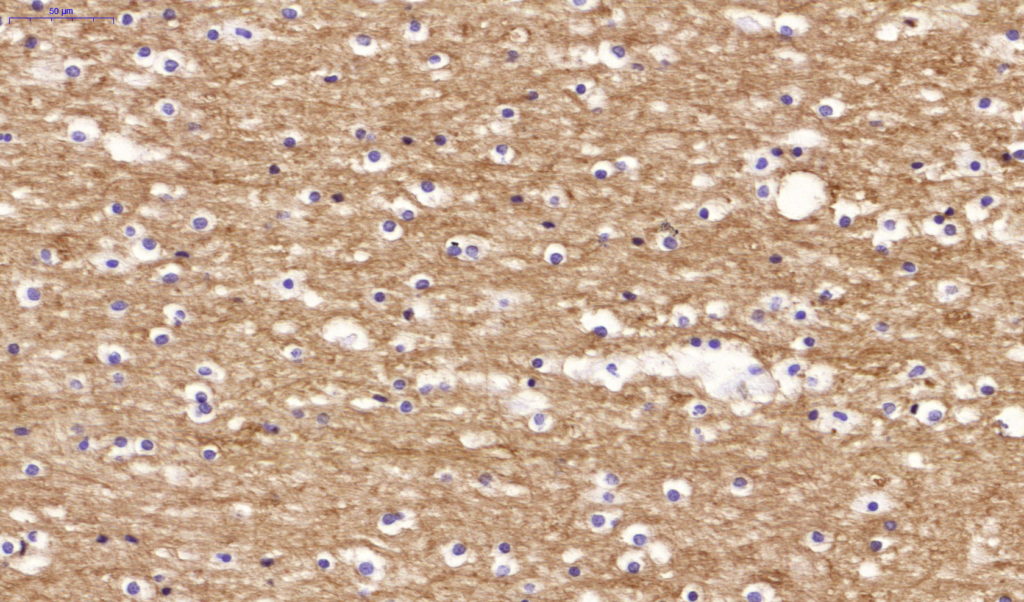Rabbit Monoclonal Antibody
Myelin basic protein (MBP) is the second most abundant protein in central nervous system (CNS) myelin; it comprises 30% of the total protein and about 10% of the dry weight of myelin. It is the only structural protein found so far to be essential for formation of CNS myelin, and has been called the ‘’executive molecule of myelin’. MBP can interact with a number of polyanionic proteins including actin, tubulin, calmodulin and clathrin and negatively charged lipids, and acquires structure on binding to them. It may acts as a membrane actin-binding protein, which might allow it to participate in transmission of extracellular signals to the cytoskeleton in oligodendrocyte and tight junctions in myelin. MBP may be applicable as a marker for oligodendrogliomas
Availability:
| Catalog No. | Contents | Volume |
| ILM4277-C01 | MBP | 0,1 ml concentrate |
| ILM4277-C05 | MBP | 0,5 ml concentrate |
| ILM4277-C1 | MBP | 1,0 ml concentrate |
Intended use: For Research Use Only
Reactivity: Human, others not known
Clone: MBP/4277R
Human Gene ID: 4155
Human SwissProt: P02686
Human Unigene: 551713
Species of origin: Rabbit
Isotype: IgG
Immunogen: Recombinant fragment (around aa 150-250) of human MBP (Exact sequence is proprietary)
Control Tissue: Human Brain or astrocytoma
Staining: Cytoplasmatic
Presentation: Bioreactor Concentrate with 0.05% Azide
Application and suggested dilutions:
Pre-treatment: Heat induced epitope retrieval in 10 mM citrate buffer pH6.0 for 20 minutes is required for IHC staining on formalin-fixed, paraffin embedded tissue sections.
- Immunohistochemical staining of formalin-fixed, paraffin embedded tissue section (dilution up to 1:100-1:200)
- Western blot (1-2ug/ml)
The optimal dilution for a specific application should be determined by the investigator.
Note: Dilution of the antibody in 10% normal goat serum followed by a Goat anti-Rabbit secondary antibody-based detection is recommended.
Storage & Stability: Store at 2-8 °C. Do not use after expiration date printed on the vial.
- Boggs J M. Cellular and Molecular Life Sciences (CMLS) 2006, 63 (17): 1945-1961

